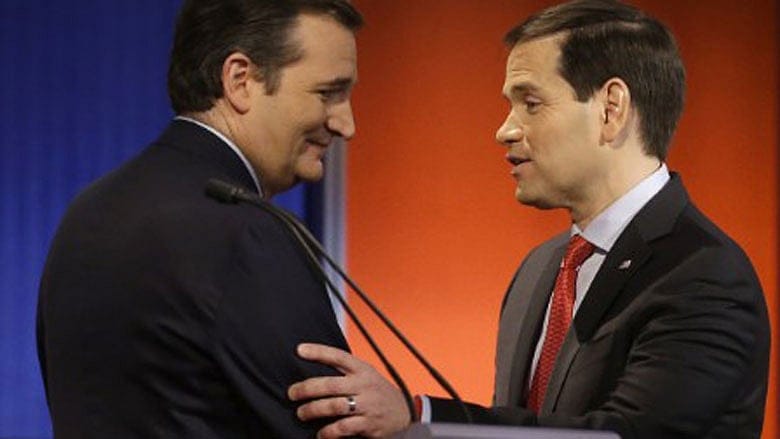A Bay State road map for Cruz and Rubio

In the Republican presidential contest, pundits never tire of asking: "Who's going to command the establishment lane?"
Without anyone really noticing, it's already happened. Paradoxically, the mainstream or moderate candidate is one Donald J. Trump. His wide swath of support across all demographic groups best replicates the similar wingspans accorded prior establishment candidates named Romney, McCain, and Dole. Admittedly, Trump is an ill-fitting establishment choice.

